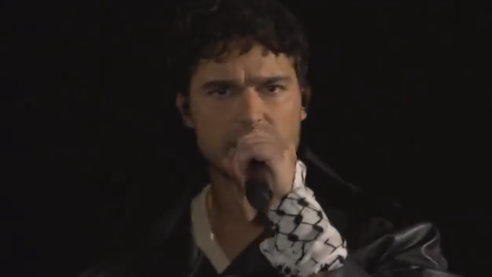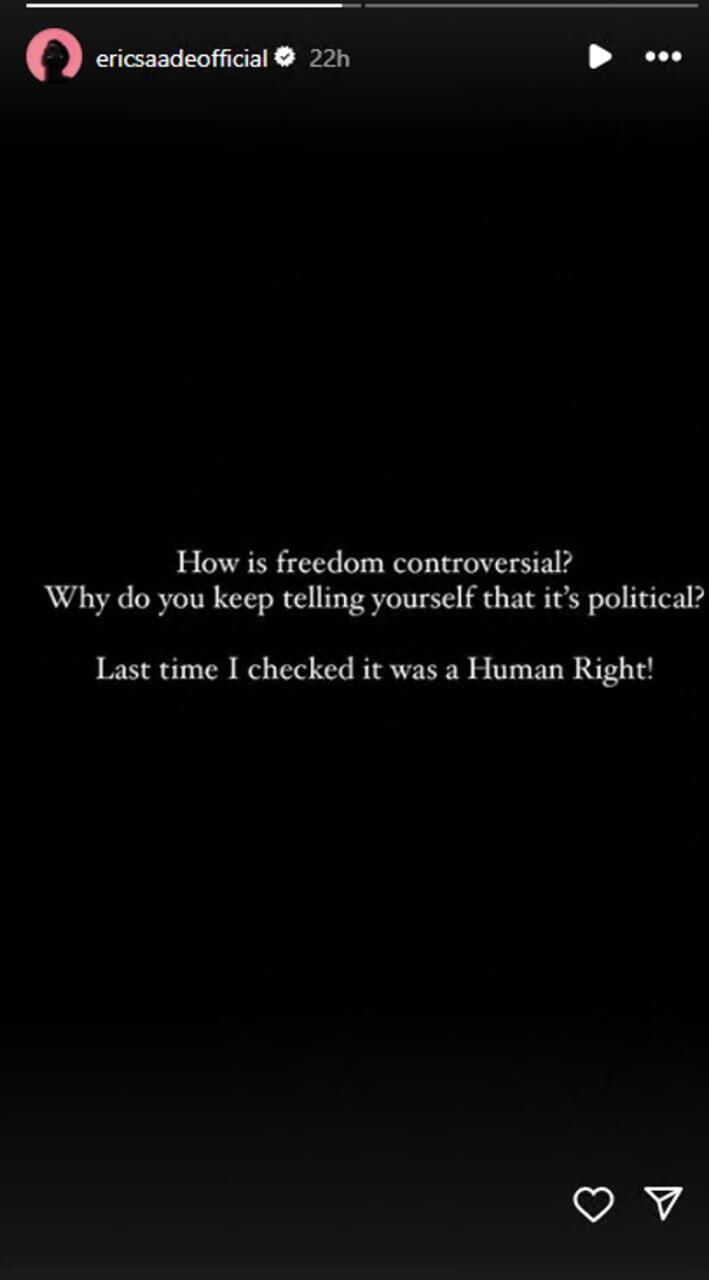The European Broadcasting Union (EBU) and SVT, Sweden's public broadcasting corporation, responded overnight to the incident during the first Eurovision semi-final involving Swedish singer Eric Saade performing onstage with a keffiyeh wrapped around his wrist.
They claimed to have had a consistent dialogue with Saade, whose father is Palestinian and who has been outspoken about his desire to display Palestinian symbols at Eurovision, before his performance. "He was aware of the rules that apply when you perform at Eurovision. During rehearsals, he did not wear the keffiyeh. He put it on without anyone noticing before the live broadcast," they said in a statement.
Eurovision announced last last month that ticket buyers would only be allowed to display the flags of the participating countries, including Israel, and the Pride flag. The contest also emphasized in a message to the Associated Press that pro-Palestinian symbols that may be banned also include "clothes, items or posters that can be used as instruments to be shown on television screens.
The overnight statement followed an earlier response from the EBU, which condemned the incident in a statement sent to teams competing in the contest. "Eurovision is a live television program. All performers are aware of the competition rules, and we regret that Eric Saade chose to ignore the non-political nature of the event," the statement said. Additionally, the segment featuring Saade was left off the Eurovision social media platforms.
In light of these reactions, Tomas Lingman, Saade's manager, responded on social media. "Eric chose to wear a keffiyeh associated with Palestine during the Eurovision opening performance in front of approximately 200 million viewers, and it became news in many places around the world. This specific keffiyeh was given to Eric by his father in his childhood so he would never forget his heritage," Lingman said.
"It is the EBU's fault for politicizing this keffiyeh, and for not broadcasting Eric's performance on their various channels. It's scary to think that something meant to be a public service is not available. Eric chose to wear it tonight out of respect for his heritage and as a clear symbol that we are all 'united in music.' I am proud that Eric dares to insist on human rights in a way that few others dare to do in this context," his manager said.
According to the Eurovision Song Contest regulations: "Eurovision is a non-political event. All participating broadcasters, including the host broadcaster, shall ensure that all necessary steps are taken within their respective delegations and teams to ensure that the Eurovision Song Contest is not politicized in any way."



